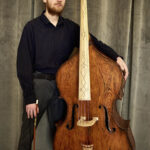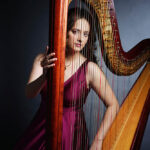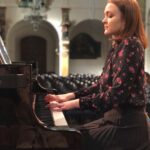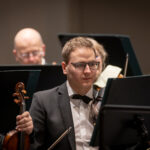| 25. 01. 2024 18:00 p.m. |
| Kino Vesmír |
| from 200 CZK |
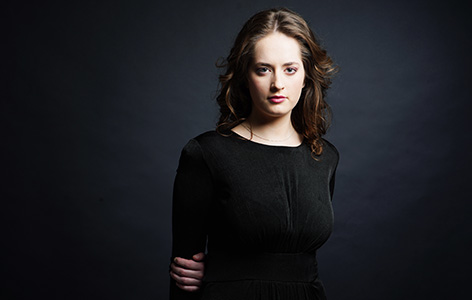
E2 Young soloists II
The young soloists who succeeded in the interpretation competition of the Janáček Philharmonic will play both usual and less usual stringed instruments, including the violin, which is the predecessor of the regular double bass. Compositions by Hoffmeister, Debussy and Chopin will be performed.
Franz Anton Hoffmeister
Concerto for double bass and orchestra No. 2 in D major
Claude Debussy
Dances for Harp and String Quintet L 103
Witold Lutosławski
Partita for violin and orchestra
Fryderyk Chopin
Concerto for Piano and Orchestra No. 2 in F minor, Op. 21
Sebastian Brettfeld – violon
Minja Stojanovic – harp
Jakub Kowalski – violin
Eva Strejcová – piano
Janáček Philharmonic Ostrava
Maroš Potokár – conductor
The second concert of the E cycle features soloists playing familiar and less common string instruments. In the very first piece, the audience will be introduced to the sound of the violoncello, the forerunner of the now common double bass. The Viennese classical composer Franz Anton Hoffmeister composed three concertos for this instrument in the 18th century, including the Second in D major.
Two Dances for harp and strings by the French composer Claude Debussy were written in the early 20th century. The Danse sacrée (Sacred Dance) is set to the rhythm of a noble sarabande, while the Danse profane (Secular Dance) is in the form of a wistful waltz, however with more whimsical interludes.
The score by Witold Lutosławski, a central figure of the Polish musical avant-garde, originally belonged to the violin and piano. At the request of the famous German violinist Anne Sophie Mutter, the composer later arranged it for orchestra.
In the 19th century, the romantic composer Fryderyk Chopin managed to create a new technical and poetic piano style, which earned him the nickname “the poet of the piano”. It is said that in his Second Piano Concerto of 1830, he was inspired by his love for the young Warsaw Opera soloist Konstancja Gładkowska. The result is a dreamy work with an emphasis on soloistic brilliance.
